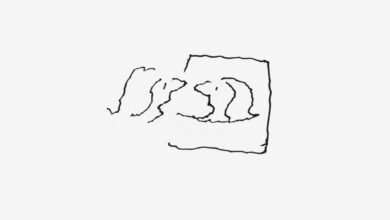10 things every successful fitness and nutrition trainer does. The best trainers do them every day. How many do you do

What makes a successful fitness and nutrition trainer? It's not just what you know … it's what you do (every day). Here are some of the practices elite coaches use to get results. Keep track of how many you've mastered.
++
You know the guy. It's the coach who seems to have it all together.
You have a long waiting list with eager prospects. Your customer results are always impressive. They make a lot of money doing what they love. And just to make us all a little more jealous, they make it look effortless.
Welcome to the Elite Trainer.
What makes elite trainers so special?
Is it your education? Your hard work and dedication? Your passion? Or do they know something that most of the others don't?
The answer to all of these questions is… yes.
Elite trainers know something that most do not. But it's not just knowledge. It is a series of practices that they work on on a daily basis.
And these practices help them build better relationships with their customers, encourage change, and improve their craft.
Here are the active habits that set Elite Trainers apart from the rest.
1. Elite trainers practice the art of human connection.
Better trainers are not only better at adjusting exercise and nutrition plans. You're better with people.
Elite coaches don't limit conversations to "here's what you need to do". You talk to customers in a way that fosters a real human connection.
By asking frank questions, expressing compassion, and being a steady source of support, they help their clients overcome obstacles so they can achieve their goals.
To practice this approach:
Ask key questions that will help customers discover, introduce themselves, or build on past achievements. For example:
- If things were better with your food / exercise, what would be different in your life? What more would you do Less of? Be proud of
- Imagine you have the body and health that you want. What did it take you to achieve this? What did you have to give up?
- What have you been successful with in the past? How can we do more of this and apply it to your health and fitness? "
And once you've asked, really listen to their answers. Let them dip. Learn from them. (For more information on this approach, see: Effective Coach Conversation: What To Tell Clients and Why It Matters).
2. Elite trainers ask why. (Again and again and again.)
You've probably seen it a million times.
New clients get a sense of how difficult it is to change their eating habits, do the extra 10 squats, run another mile and rearrange their lives for all of that … and suddenly they just don't want it that way anymore Very much.
Elite trainers have the opportunity to inspire their clients to want hard work in every single session. They know how to unleash the deeper motivation, purpose and inner fire of their customers.
How do you do that? For one, they know how to ask their customers why.
To practice this approach:
Use the five why technique. This is how it works:
When you set goals with your customers, ask them why.
Q: "Why do you want to achieve this?"
A: "Because I want to lose weight."
Regardless of the answer they find, ask again why.
Q: "And why do you even want to lose weight?"
A: "Because I used to be thinner and I'm embarrassed by how heavy I've become."
Ask the reason a total of five times. It's surprisingly challenging – and surprisingly effective at reaching people's core motivations.
(By the way, Elite Trainers use "The Five Reasons" for themselves. Because they know it's best to get to the heart of your own motivation.)
3. Elite trainers help the "competition".
Do you want to know a secret? There is no competition for an elite trainer.
Elite coaches don't feel insecure about what other coaches are doing because they know how to use their individuality as an advantage in their career.
Instead of hiding and hoarding their knowledge, elite trainers share this knowledge and facilitate conversations in order to build a trustworthy tribe around them.
Find your tribe and help make those in your tribe successful. You are also more likely to succeed.
To practice this approach:
Engage with other people's content and social feeds.
Take a few minutes to leave iTunes reviews on their podcasts. Check out her books on Amazon; share their Facebook posts; and so on.
These simple steps will help them build their expertise and expand their reach. As a bonus, you can expand your own social networks at the same time.
To improve on this concept, consider creating a Facebook group or other social community to serve as a source of mutual support, discussion, and inspiration. You can answer questions and help your colleagues – and also position yourself as an expert.
4. Elite trainers do less.
"Doing anything" is a myth.
Spreading too thin is a prime ticket to disappointment and failure. Instead, top-notch coaches find and do what is really important to their respective market and clients.
Elite trainers also know that their clients can't do everything. They know that giving customers a little habit at a time is far more effective than throwing an ambitious project at them and hoping for the best.
To practice this approach:
Try the "one-habit method".
Work with them on all the things your customer wants to do and want to achieve to find out which goal is most important to them right now. Then, based on your goal, help choose just one habit to start practicing today.
The habit should be so simple it almost feels "too easy," and it should be done in as little as five or ten minutes each day.
Have your client practice this habit every day for at least two weeks. Ask them to check back in with you regularly to let you know whether or not they have completed the task.
(Once you have completed some type of PN coaching, you will recognize this "one-habit" approach. There's a reason we recommend it: it's an integral part of our coaching approach because it works.)
5. Elite trainers practice the basics.
Bruce Lee said, "I'm not afraid of the man who kicked 10,000 times, but the man who kicked 10,000 times."
Kick Guy never had to have the perfect kick. All he had to do was focus on mastering the process and being excellent with all of the pieces. And that was enough to scare Bruce Lee. (Pretty scary.)
Elite trainers are like Kick Guy. You are ready to practice techniques, including the basic ones, over and over again so that they can attain true mastery.
They take this approach with their clients too, helping them build their own foundation and acquire the skills they need to achieve sustainable change.
To practice this approach:
Get back to basics with something you enjoy doing and consider yourself "pretty good." Think back to the first skills you learned to do this thing.
For example, if you're a boxer, consider your posture, hip movement, or push. Could you benefit from exercises that focus on your core techniques?
Or, if you've ever struggled with bad eating habits, watch out for meals. Do you still eat slowly and carefully as you used to? Would you benefit if you paid more attention to how full you feel at the end of each meal?
Pick one basic thing that you can go from "good" to "great" or "great" to "positively murderous". Then work on improving that one thing. Ask a coworker or coworker for help if you want.
It might be strange to act like a beginner again, but that way you are on your way to mastery.
6. Elite trainers listen to what they don't want to hear.
Many trainers focus (quite logically) on motivating their clients – the side of them that is interested in change.
However, this doesn't work in the early stages of customer development. Because that other side – the part that is afraid of change and defies your efforts – is ridiculously strong. After all, it kept your customers from changing for a long time.
In order to get your clients in the right direction, coaches have to do what sounds a bit paradoxical: they have to hear the resistance first.
Elite trainers listen to the resistance. You look for it. Because they know they have to work with it instead of against it.
To practice this approach:
Listen to your own resistance.
Think about something that you wanted to change but haven't achieved yet. Tip: Think about all of the things you have told yourself you should and shouldn't do.
Write down what you want to change. Then ask yourself:
- What is GOOD for me about NOT changing? (In other words, how is a change NOT helping me or helping me fix a problem?)
- What would be BAD about changing yourself? What do I have to give up or lose?
Write down your answers.
How do you feel? Your resistance might feel a bit calmer or quieter. You may feel a little ready for change. After you have understood your own resistance a little better, you can also listen to it in customer conversations.
7. Elite trainers know when to shut up.
Elite trainers have a lot of expertise, but that doesn't mean they always pronounce it.
Think about it: If someone asks, "What should I eat after exercise?" One expert answers the question, "You should be eating protein and carbohydrates."
But when a customer asks, "What should I eat after training?" A coach asks, "Tell me about your training program and what do you think you can do?" Trainers even think: "What do you like to eat after training?"
A good trainer doesn't mind being calm, asking questions, or taking a back seat.
Many fitness professionals try to be both an expert and a trainer at the same time. But that never works. You cannot speak and listen at the same time. You need to know how and when to switch back and forth between the two.
In other words, you need to know when to stop talking and listening.
To practice this approach:
Try to use this expert versus coach checklist on yourself:
Spend most of the time with your customers …
| expert | Trainer |
|---|---|
| Talk and tell … | or listening and thinking? |
| Tell them what you know … | or share what you are currently working on? |
| Answering questions?… | or ask questions? |
| Let the customer set the tone? … | or lead the customer to a decision or action? |
| Show and direct? … | or leading and accompanying? |
| To be in the spotlight … | or take a back seat? |
Once you are more on the "Expert" page, try actively practicing some of the actions on the "Coach" page.
8. Elite trainers practice being imperfect.
Many health and fitness professionals have high standards. Most of us want to go the way. We also want to look like we're walking the path.
Therefore, we try to refine our own health habits, work practices and self-portrayals. We know that our bodies are often advertisements for our services, so we care about doing our best.
But too often we try to be perfect. And that will be our downfall.
Sure, on the one hand, a small fire will keep you energized and sharp. But too much pressure is a parking brake on performance.
(Have you ever suffocated during a game or competition? You were probably overwhelmed by the pressure. It happens to athletes all the time.)
While elite coaches strive for excellence, they don't try to be perfect – nor do they expect their clients to be perfect.
To practice this approach:
Try to share a little bit of your own imperfect experience with your customers.
If they are fiddling with something, tell them about a time when you felt uncomfortable, embarrassed, or uncomfortable, either while working on your own fitness and nutrition journey or another time when you were struggling to find something new to learn.
If they're feeling like a failure, let them know that everyone falls down sometimes: share one of your own mistakes – and maybe even how you fixed them.
9. Elite trainers keep it real.
When you work in the fitness and health industry, it is easy to get a lot of ideas.
Things like this:
- "Never eat processed foods."
- "Always eat local, seasonal, organic foods."
On the surface, it's hard to argue against it. But really? I doubt you always eat whole, unprocessed, local, seasonal, organic foods unless you live in a yurt somewhere and grow all of your own foods from scratch.
Which means these nutritional ideals are not targeted – they are impossible. Also for the world's best experts.
Elite trainers are ready to do a reality check. They realize that humans do not need a food deity to follow. You don't need to have strict codes of conduct that include words like "should", "always" and "never".
Instead of training from a place of the imagination, elite trainers stay on the ground. Little by little, they help their customers to make progress.
To practice this approach:
Examine the rules you have set.
Take into account all of the "rules" and expectations related to fitness, diet, and health. Write down as many as you can think of. Make sure to include words like "should", "always", and "never".
- You should always …
- You should never …
- Being "Fit" means that you will always …
- To be "healthy" means that you will never …
- Eating "nutritious" means …
Now read your answers and consider whether a customer could reasonably "always" or "never" do them.
10. Elite trainers ask for help.
If you are coaching other people, it only makes sense that you have experienced coaching yourself.
If you've never been coached by anything, you may not understand what your clients are experiencing, thinking, and feeling.
Elite trainers know that. They are looking for mentoring and have themselves coached. Sometimes it's not even fitness related. It could be for their business or personal life (like being a better parent or partner) or a hobby they especially love.
The important thing is that they are ready to ask for help, to make themselves vulnerable, to go through the change process … just like their customers.
And they know how powerful this process of change can be.
To practice this approach:
Make your coaching checklist.
What fields are you looking for?
- Nutritional science?
- Coaching psychology?
- Business strategy?
- Professional development?
- General wisdom?
What kind of mentor or coach would you like?
- What kind of person are you?
- What is their reputation?
- What would you like them to show or say to you so that you feel like they “fit right”?
Now think of people in your life (whether paid professionals, co-workers, or friends) who may meet your criteria. When someone comes to mind, great. Ask if they are willing to offer their expertise and support for the things you need help with.
Or if you need to do more research, that's cool too.
What do you do next
Choose one of the practices.
Think about which of these practices you would like to try for yourself.
Whatever you choose, do you have the skills to incorporate them into your coaching style now? If not, read the PN Skill Development Approach to get inspiration and figure out your next steps.
Be an observer.
Pay attention to your style when coaching. Do you speak and offer advice when you might ask questions? Are you actually hearing what your customer has to say or are you rushing to find the answer?
Don't judge yourself too harshly – start by creating awareness first. That way, you can be clear about what you want to improve.
Ask for help when you need it.
The transition from a “good trainer” to an “elite trainer” requires a lot of work and cannot be done alone. Look for people you can learn from. Maybe it's a community member, old mentor, or seasoned friend.
Would you like strategies to improve your coaching?
It's not a secret Master trainers develop over timeusually through education and consistent practice under the guidance of a mentor or coach.
Precision Nutrition is the only company in the world that works with and works with thousands of our own customers as nutritionists teaches health, fitness and wellness professionals our real world methods to get results.
And here's some great news: Our next Precision Nutrition Level 2 Certification Master Class starts on Wednesday October 7th, 2020.
Would like to Get complete confidence in your coaching skills? Get (and keep) more customers? Grow and strengthen your practice? In that case, Precision Nutrition Level 2 certification is for you.
It is specially designed for Level 1 students and graduates who realize that knowledge of nutrition science is insufficient.
Part master class, part graduation program, part mentoring, it's the only course in the world designed to help you Master the art of coachingThis means better results for your customers and better practice for you.
As we only host a limited number of professionals and the program sells out every time, I highly recommend that you include your name on our VIP list below. When you do this, you will have the option to log in 24 hours before anyone else. Even better, you get a huge discount off the general price of the program.
(Note: The Level 2 Master Class is only for students and graduates of our Level 1 certification. If you haven't already enrolled in this program, please start there.)
Interested? Add your name to the VIP list. You save up to 37% and secure your place 24 hours before everyone else.
We will be opening places in our next Precision Nutrition Level 2 Certification Master Class on Wednesday October 7th.
If you want to know more, we have created the following VIP list which gives you two advantages.
- Pay less than everyone else. We want to reward people who are ready to get started and ready to master their coaching practice. Therefore we offer a discount of up to 37% on the general price when you sign up for the Master Class VIP list.
- Register 24 hours in advance of the public and increase your chances of getting a seat. We only open the PN Master Class twice a year. Due to the high demand and a very limited number of spots, we expect it to sell out quickly. However, if you sign up for the master class VIP list, you will have the option to register 24 hours before anyone else.
When you are ready to take The next step in becoming a world class coachWe are ready to share our knowledge and help you master the art of coaching.



